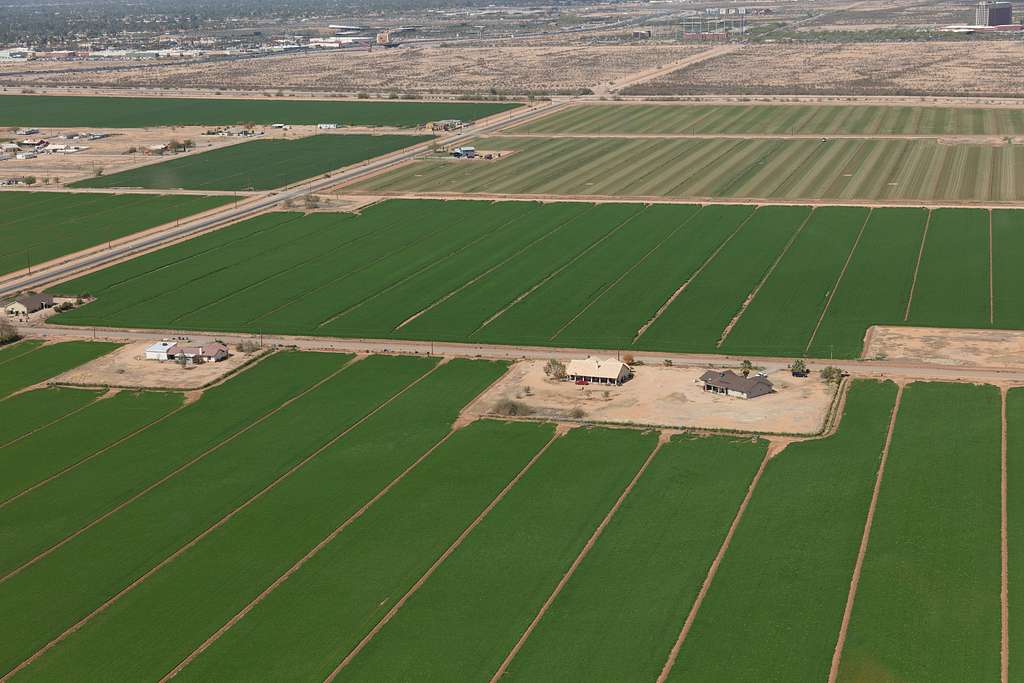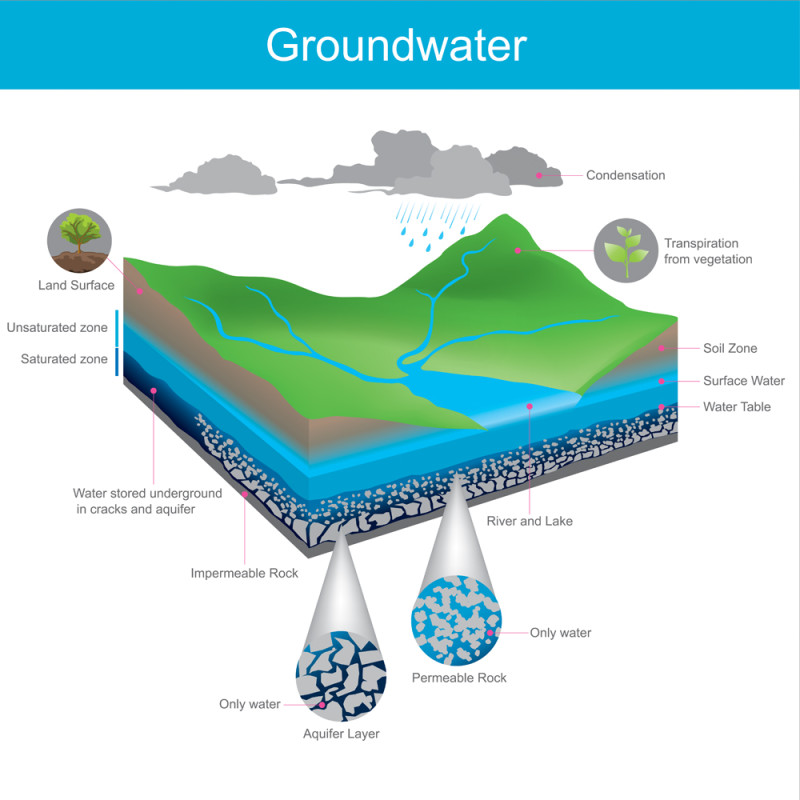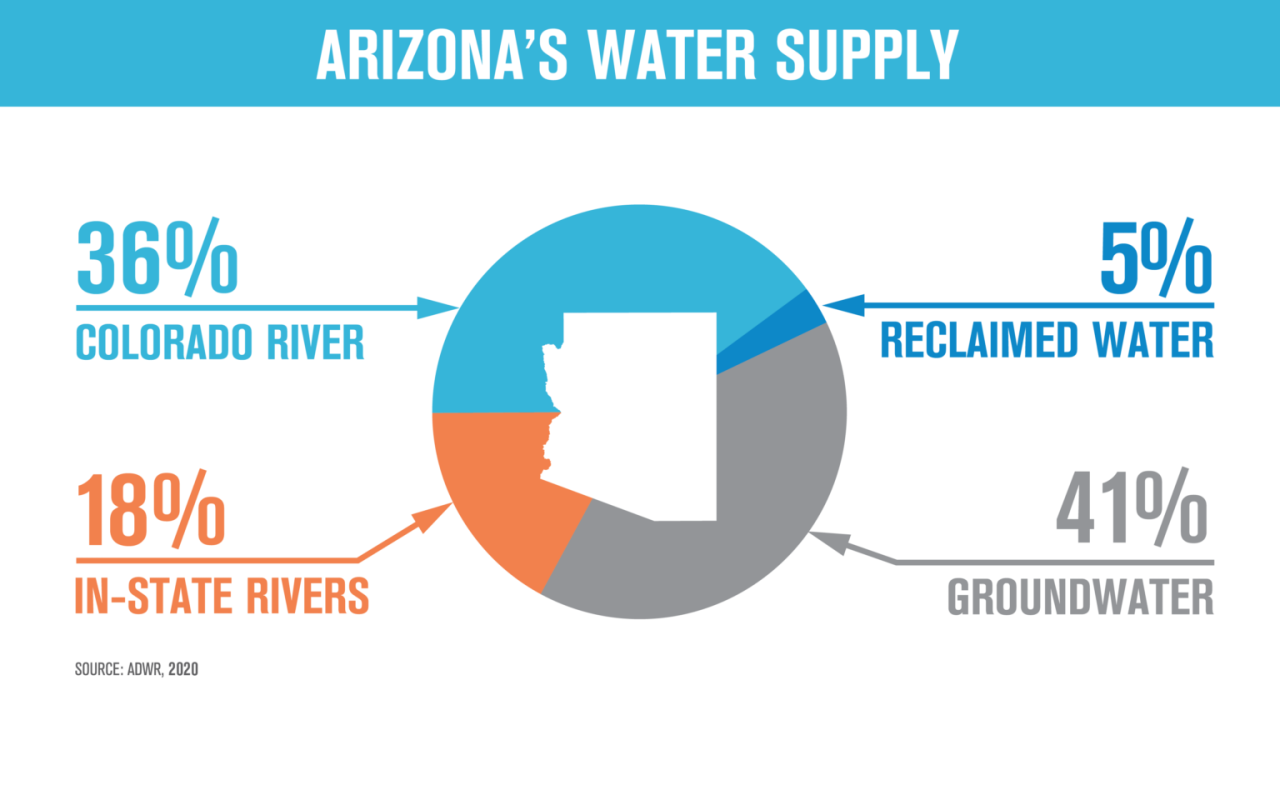 Arizona is known for many things like being home to the Grand Canyon, and since 1968, the famous London Bridge!
Arizona is known for many things like being home to the Grand Canyon, and since 1968, the famous London Bridge!
Recently, the state has garnered national attention for a struggle against a Saudi Arabian-owned farming company operating there. The state aims to protect its groundwater and residents.
But what’s the issue with groundwater? Let’s find out!
What Is Groundwater?
Groundwater is extremely important to our planet, and every continent in the world has it. It is water that filters slowly through the ground to underground caverns called aquifers.
 The water may be stored in the caverns for only a few days, or up to thousands of years! Groundwater isn’t renewed very easily like lakes or rivers sitting on the earth’s surface. It takes time for rainwater to soak into the ground and travel to the aquifers.
The water may be stored in the caverns for only a few days, or up to thousands of years! Groundwater isn’t renewed very easily like lakes or rivers sitting on the earth’s surface. It takes time for rainwater to soak into the ground and travel to the aquifers.
This slow process wasn’t an issue in the past, because most groundwater was used for private wells, which lower demand on aquifers. But industrial use of groundwater is high, and it’s causing the water to be used faster than it is replenished.
The Issue
Fondomonte Arizona is a Saudi Arabian alfalfa farm located in Butler Valley, AZ near Phoenix. It exports its crop to Saudi Arabia for use as cattle feed.
Since 2015, the company has used Arizona’s groundwater - free of charge and without regulation. However, recently Fondomonte has disclosed that its annual water usage is roughly the same as a population of more than 50,000 people!
Arizona Gov. Katie Hobbs released a study detailing that the state’s groundwater levels near Phoenix are too low to meet expected needs for the next century. In a move designed to conserve her state’s resources, she announced that the state is discontinuing its lease with Fondomonte Arizona due to documented lease violations.
Serious Issues
Earth has 2.5% freshwater, and competition for this precious resource is steep. Throughout the nation, 90% of aquifers are dangerously low, and according to a New York Times study, well-water levels have dropped since 1940.
 If shortages become more severe, it will affect our bountiful food supply, and cause most American cities to suffer because of their reliance on groundwater.
If shortages become more severe, it will affect our bountiful food supply, and cause most American cities to suffer because of their reliance on groundwater.
To make matters worse, PFAS chemicals (read more here) are leaching into aquifers because they aren’t filtered from the water as it seeps through the soil. A 2015 sampling found that 1 in 5 groundwater samples contain dangerous chemicals. This pollution is worrying, as groundwater makes up ⅓ of American drinking water.
Other consequences of low groundwater levels are being experienced in regions across the US, as roads are collapsing and the ground is fissuring because there is no groundwater to fill up underground spaces. Low or empty aquifers are at risk as salt water enters them -- known as saltwater intrusion. Continued intrusion will cause the remaining water to be undrinkable.
Actions
Experts agree that water conservation and efficient use are key to combatting this issue.
Some US farmers are using an old method of farming called dryland farming which relies on rainwater for their crops, rather than groundwater. Other methods are to refill exhausted aquifers with diverted rainwater and melted snow. Hopefully, we can continue to figure out ways to replenish this precious resource!
Sources: NY Times, Washington Post, NatGeo, ABC, Fox







